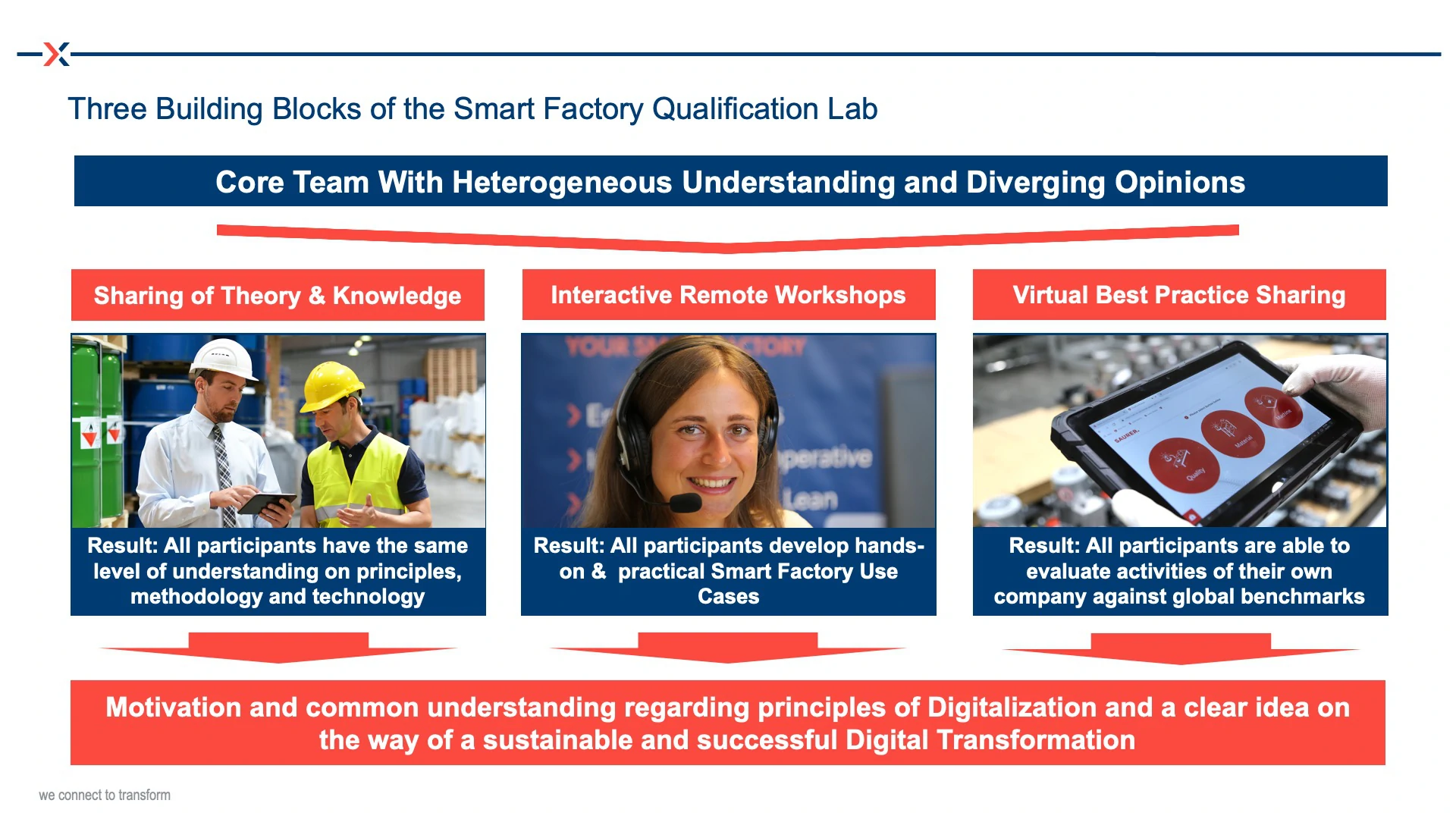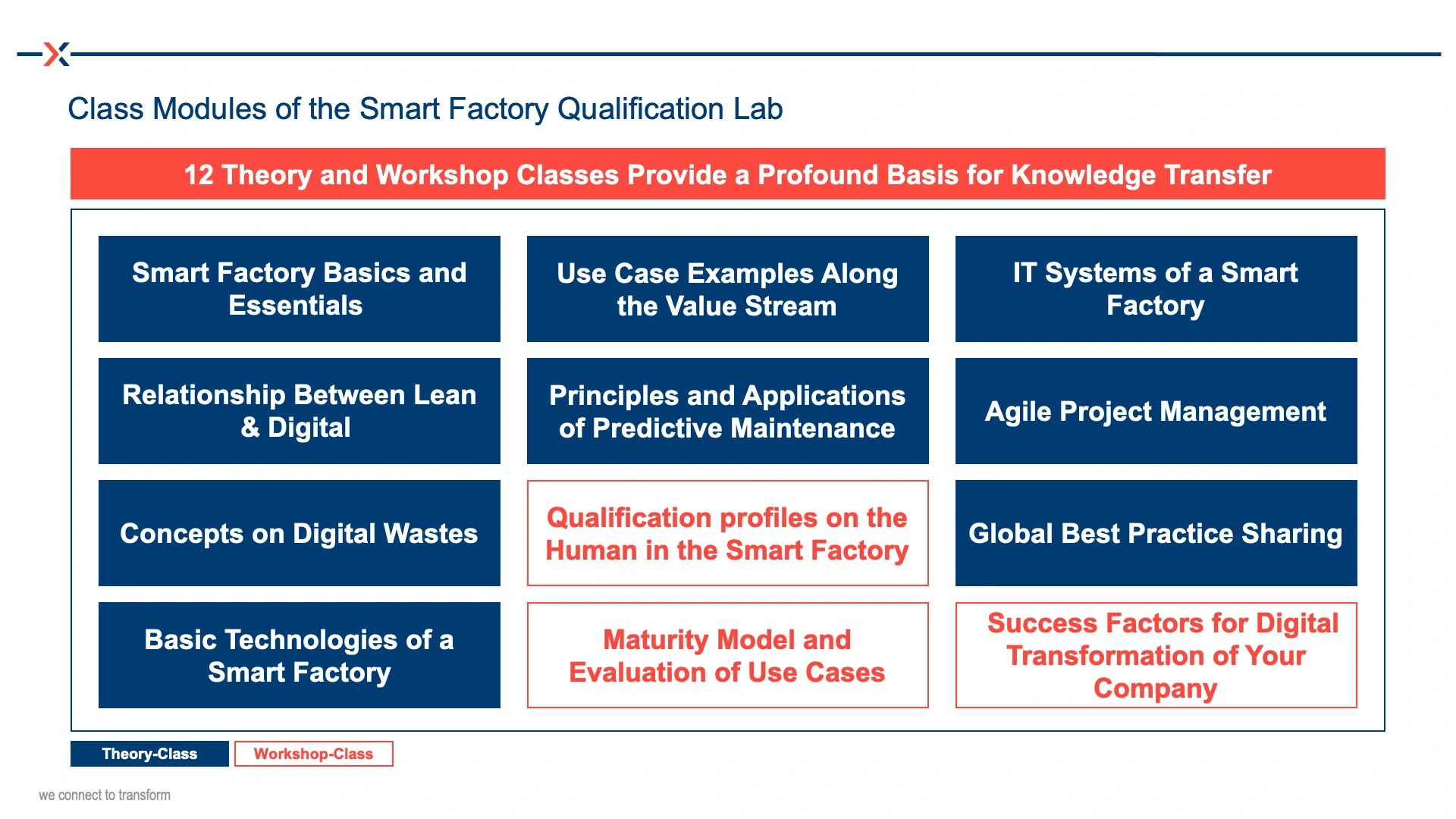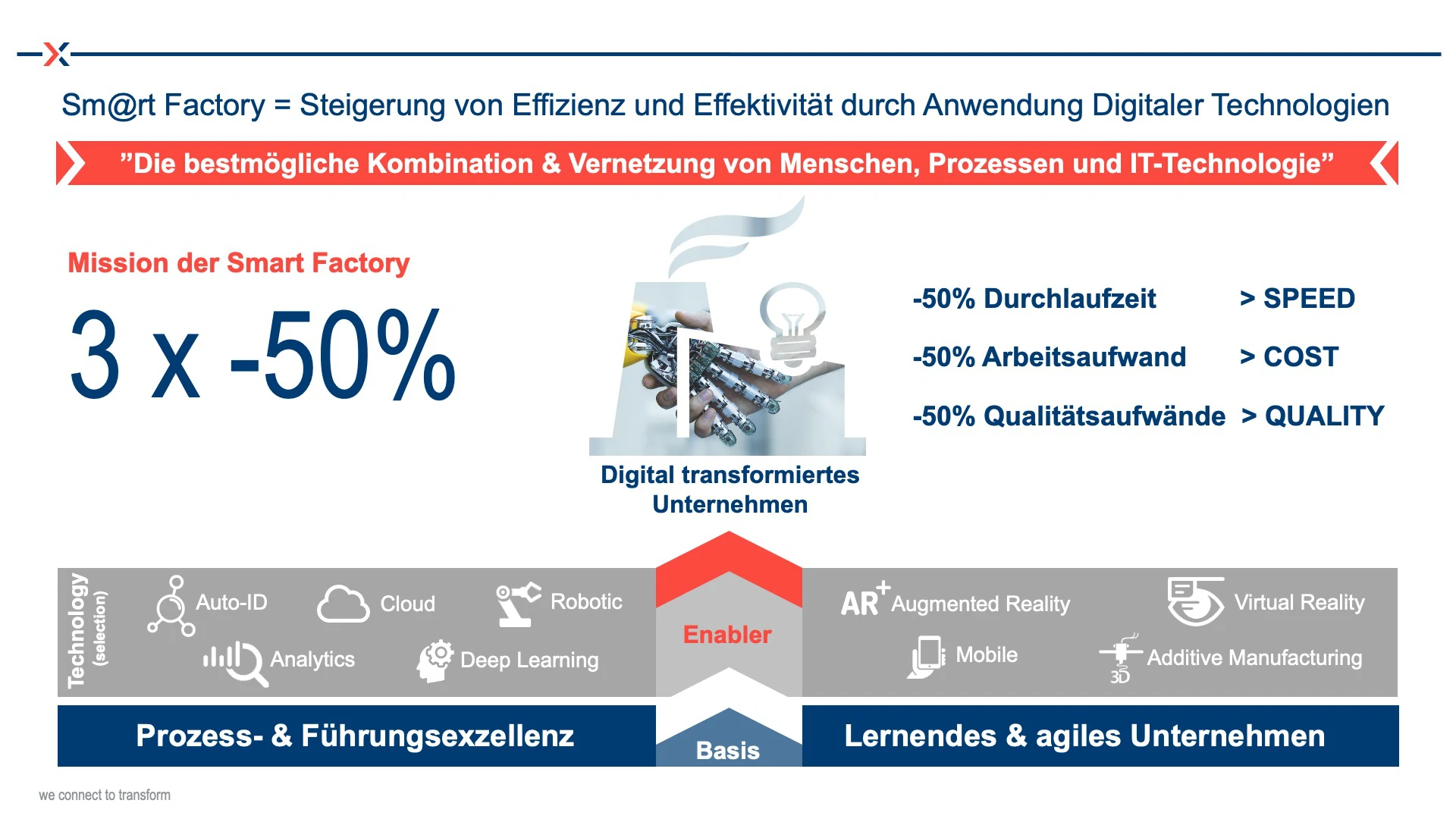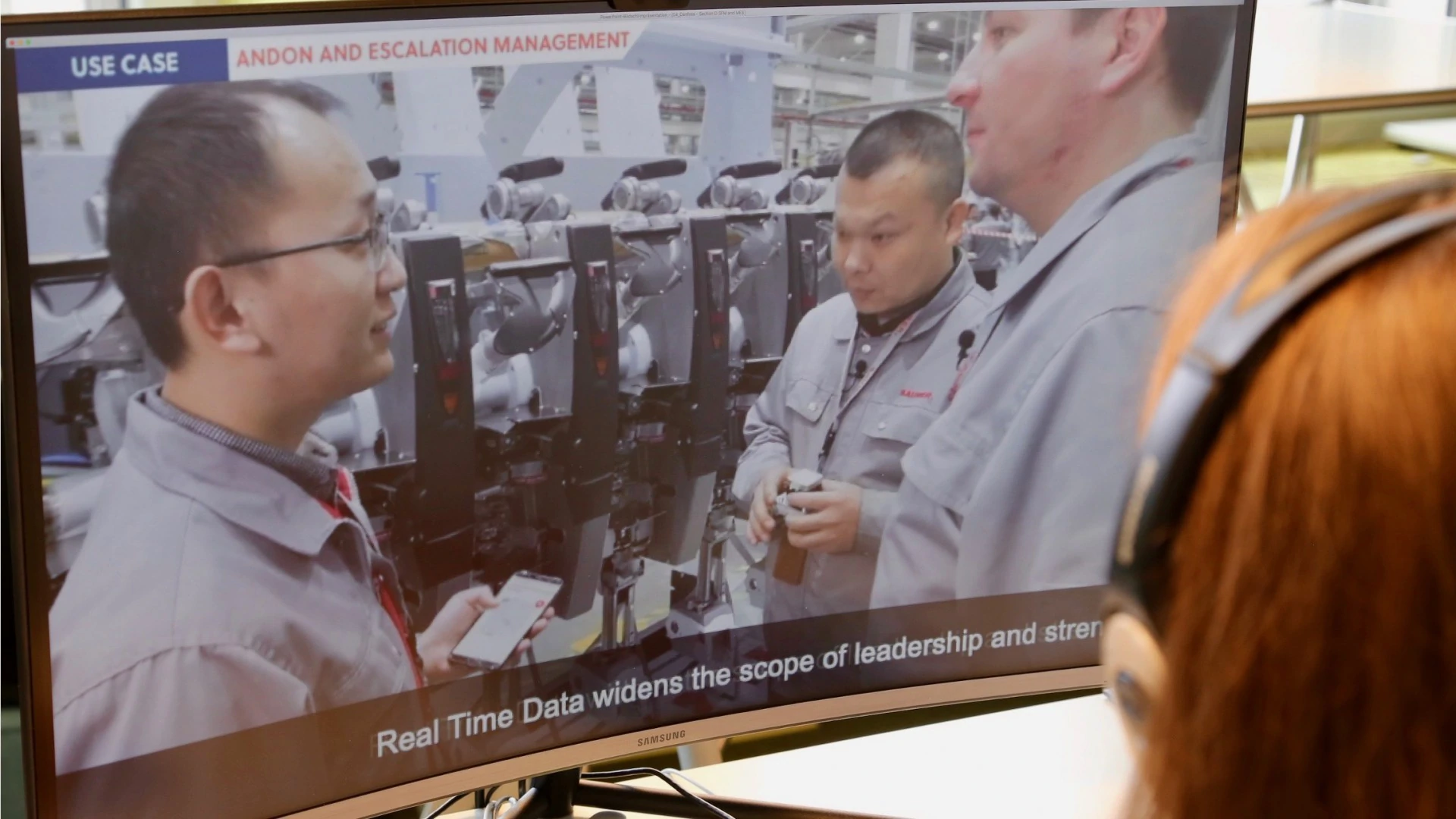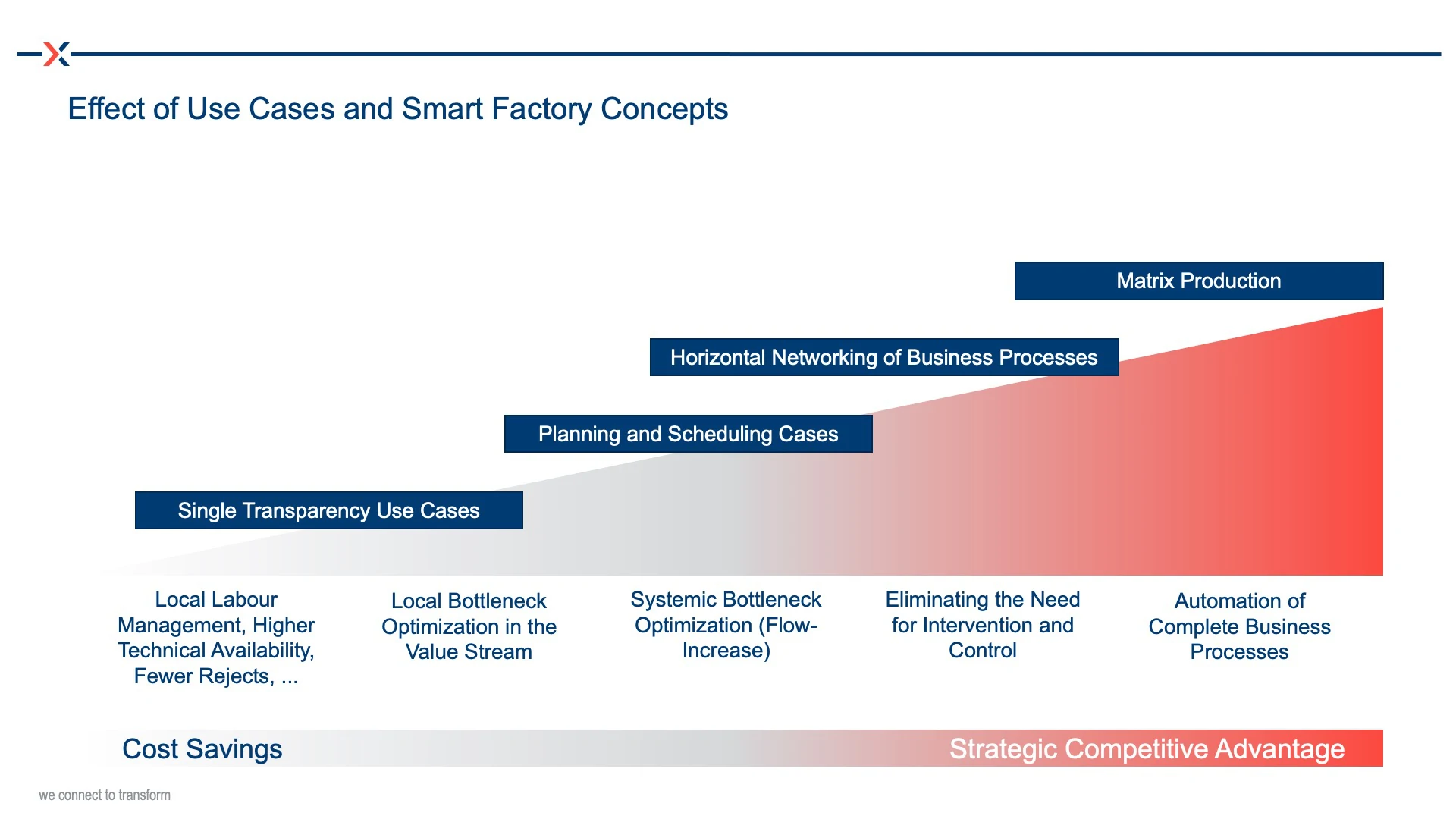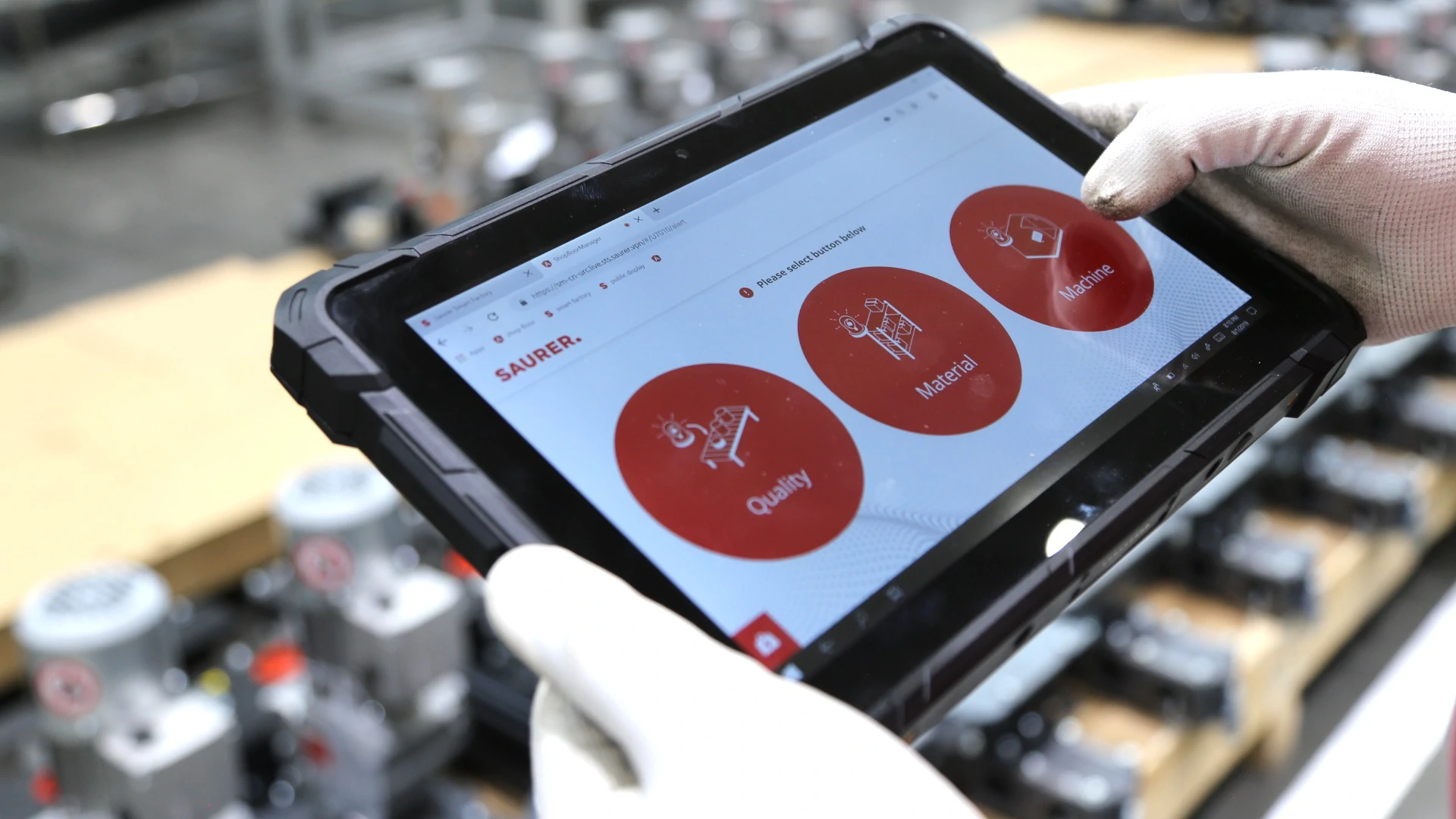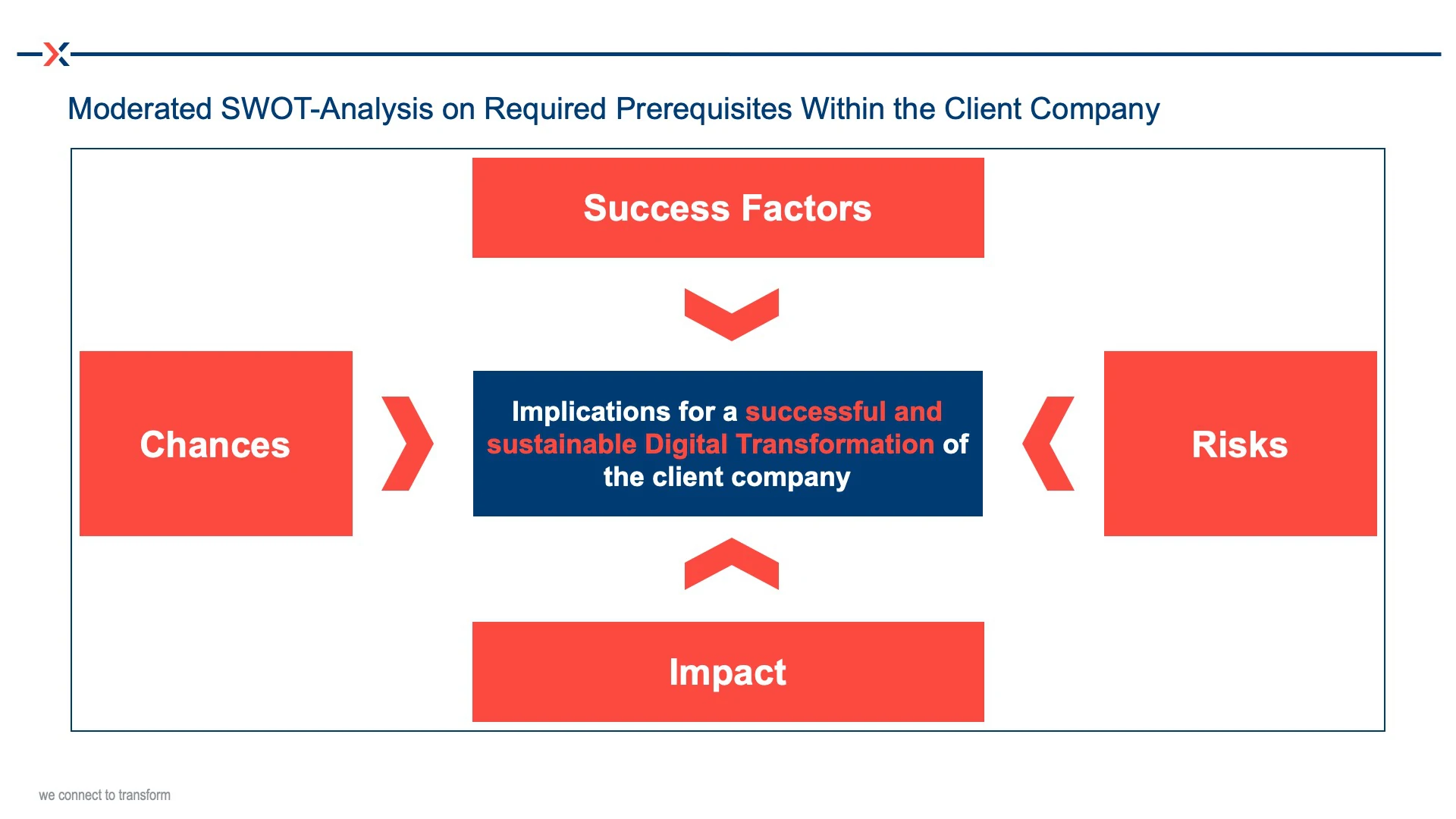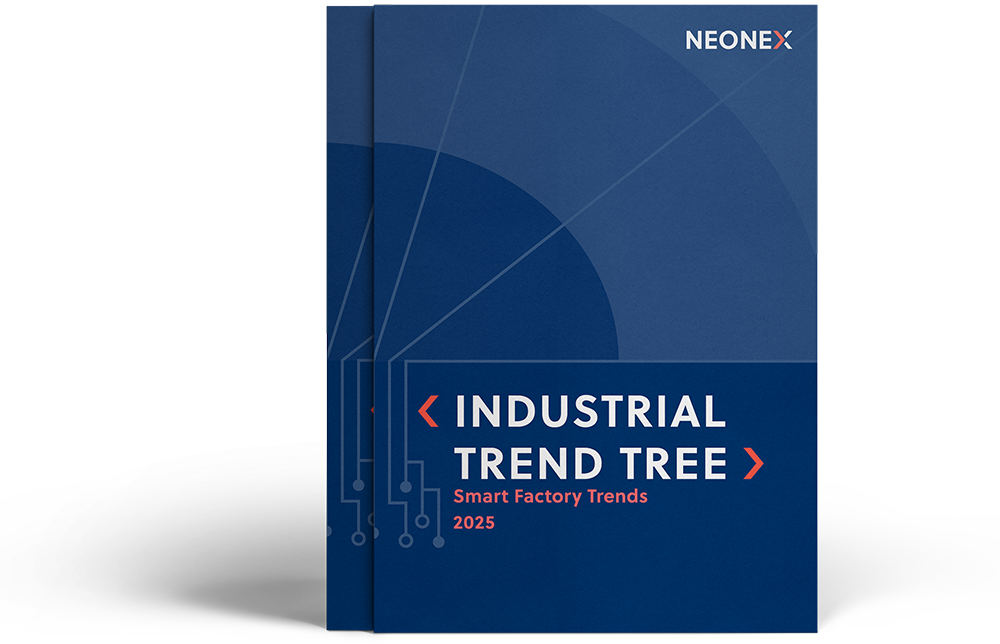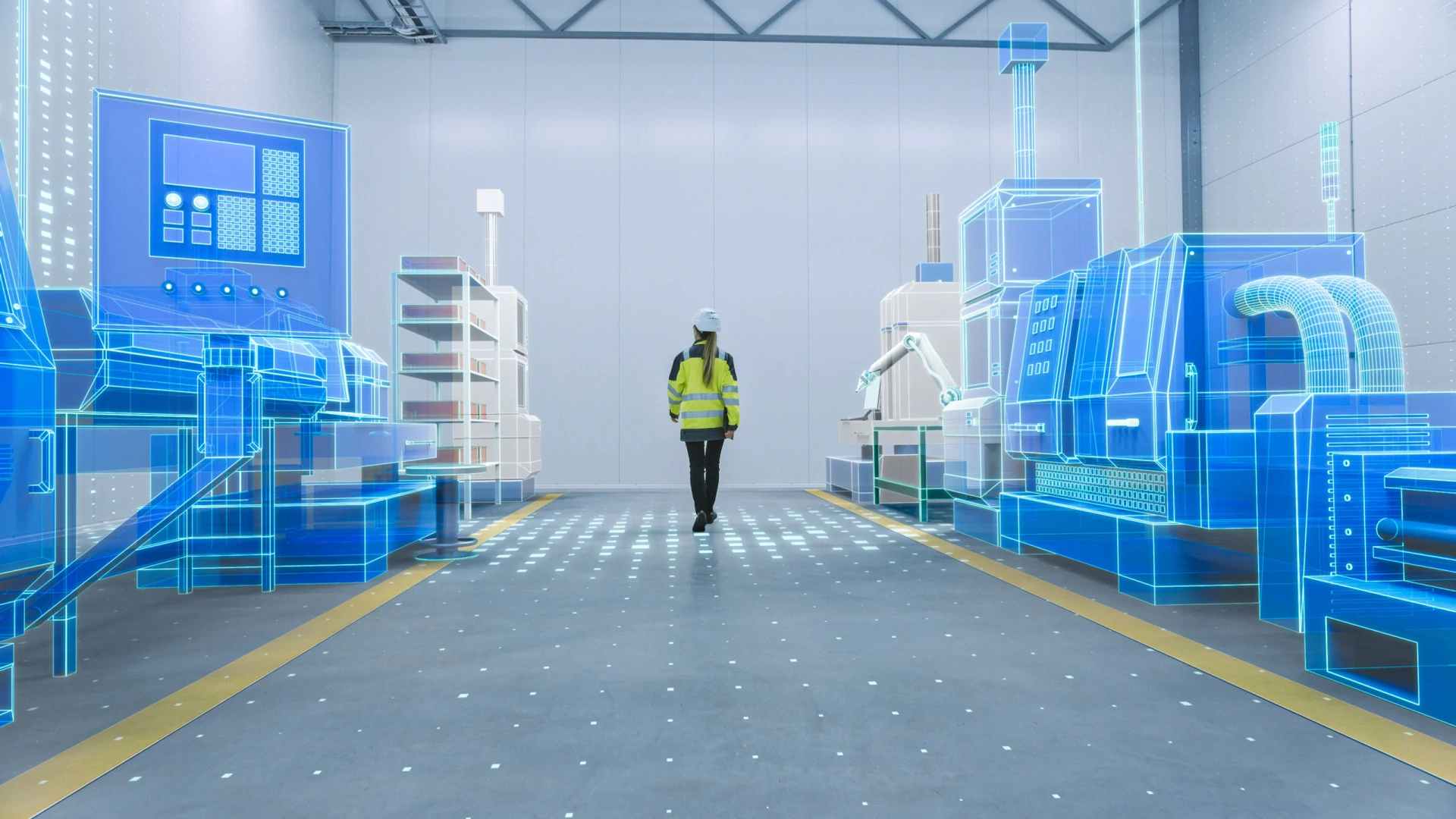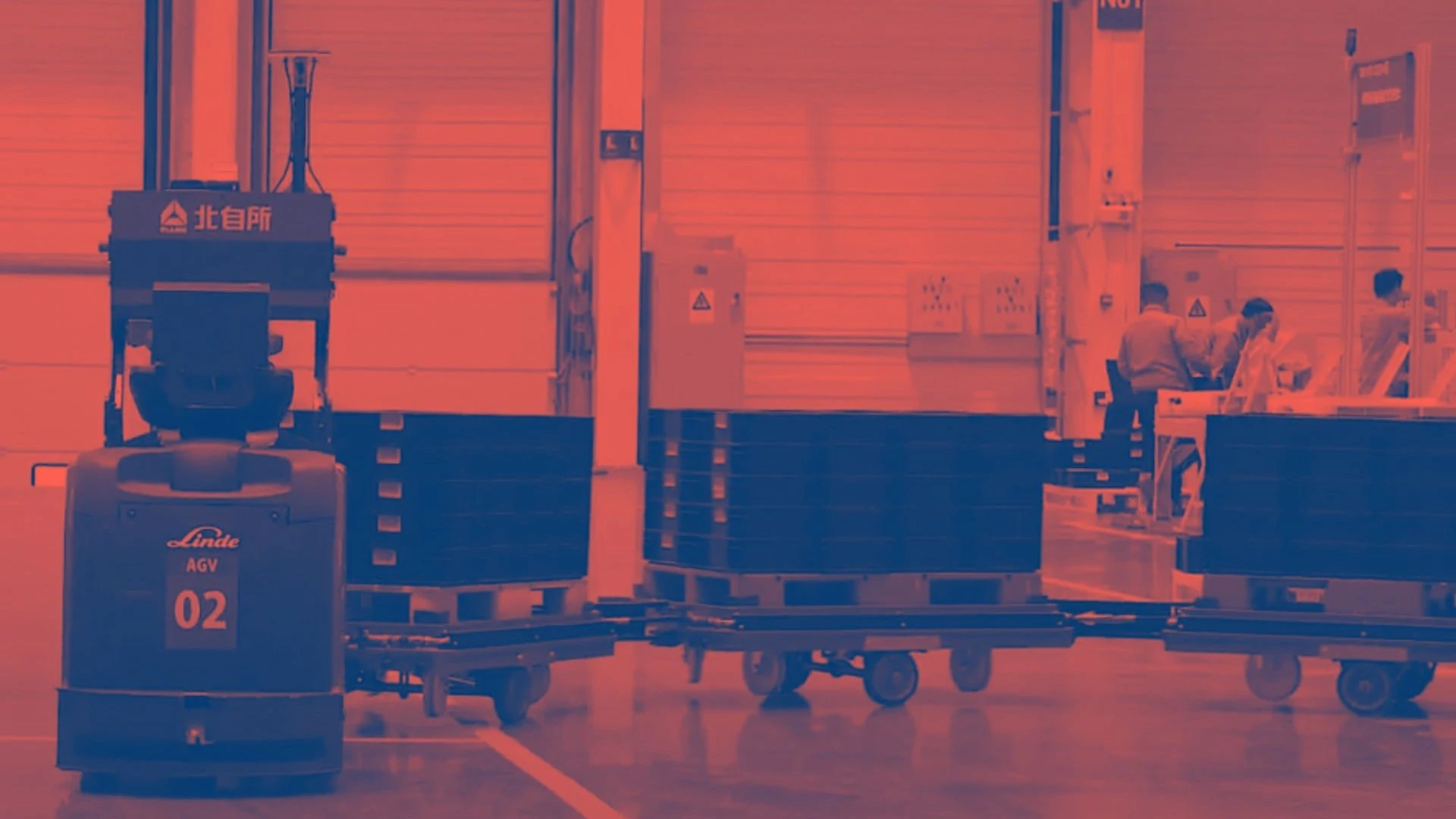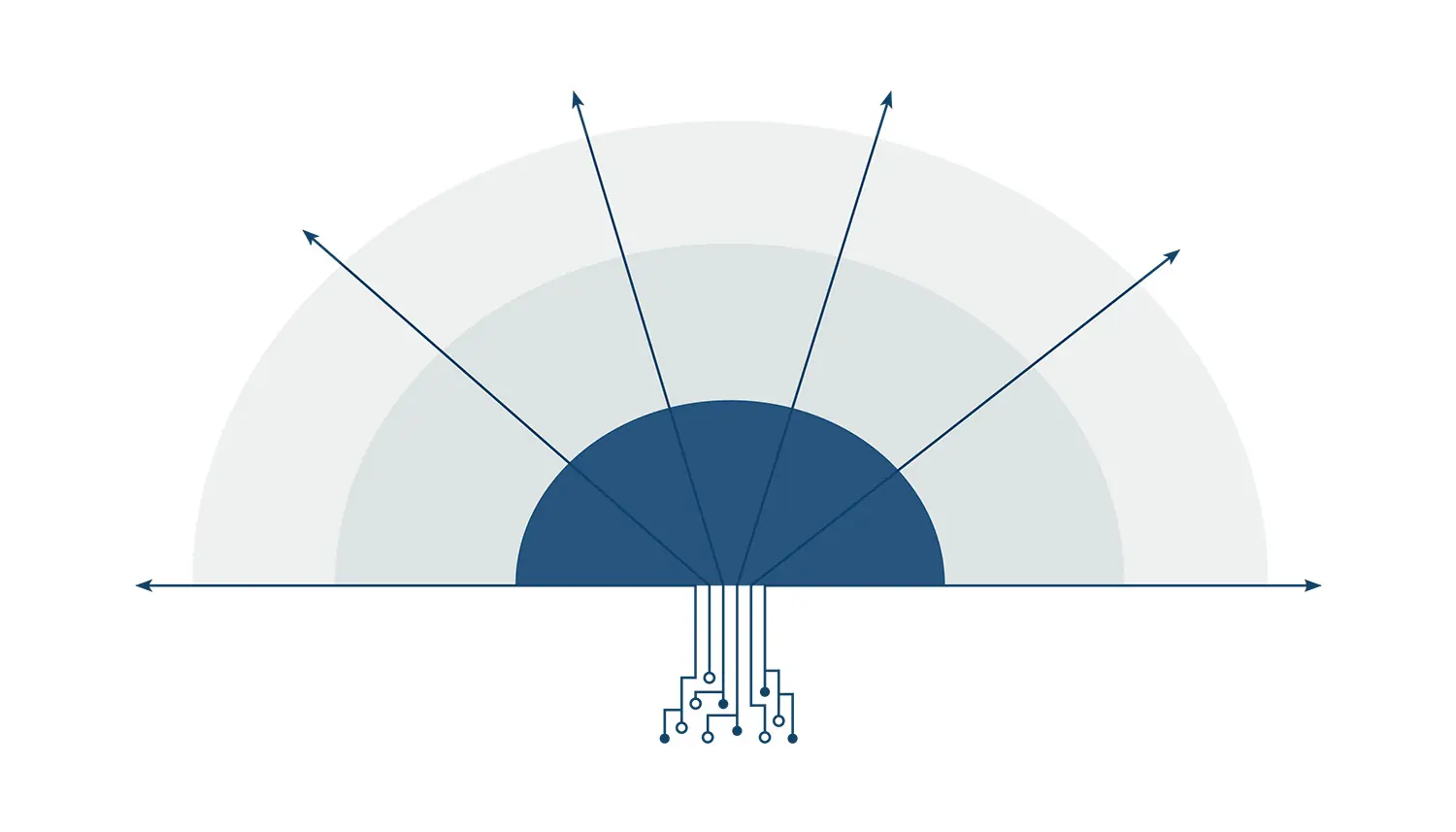Smart Factory Qualification Lab
Remote Inhouse Training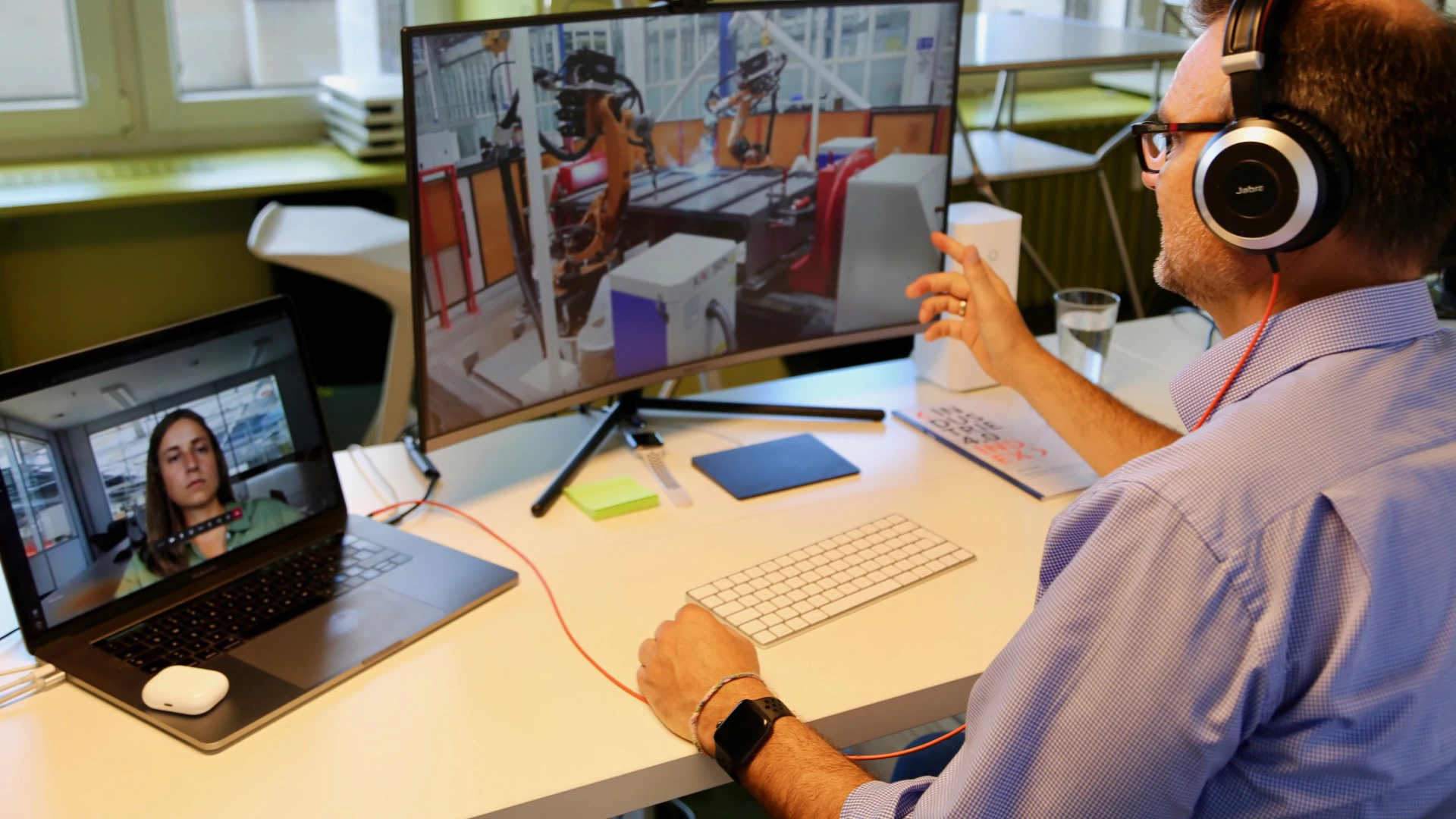
Project Approach
The aim of the remote in-house training was to provide a total of 40 middle management representatives, experts and selected employees (e.g. project managers) with basic knowledge of the building blocks of digitalization with an online training program.
The focus was on establishing a uniform understanding and the same vocabulary as the basis for an efficient and targeted discussion of internal digitalization approaches.
In addition, all participants were given the central do's and don'ts of Digital Transformation. Using specific project examples, it was shown how other companies have successfully embarked on their path to the Smart Factory.
The employees were able to gain vital knowledge for the successful implementation of the Digital Transformation of their own company without having to come in for a training program.
Benefits for the customer
Content
The transfer of theory and knowledge as well as joint tasks took place completely remote, clustered in three thematic pillars with a total of 12 work modules. These were carried out with a total of four groups, each completing three times half a training day. Regarding optimal didactics, a combination of different digital, interactive collaboration formats was used to convey the learning content.
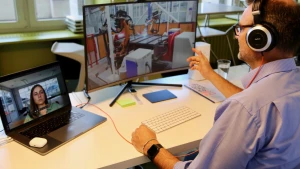
Essentials of Digital Transformation
- Framework Understanding and Wording
- Qualification
- Remote
In the first thematic pillar of the project, the most important basic principles for understanding Digital Transformation were communicated.
The focus was on the mission and the concrete expected benefits of a Smart Factory as well as the derivation of how digital concepts expand the existing Lean approach. The pragmatic concept of identifying digital waste, as well as an overview of central basic technologies of Digital Transformation, rounded off the introduction to the topic.
All participants built a uniform framework for understanding the basics of Digital Transformation towards a Smart Factory. In particular, it became clear why the implementation of a Smart Factory makes sense for manufacturing companies and how the concepts used for this go beyond established approaches from the Lean philosophy.
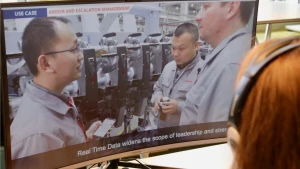
Pragmatic Implementation in the End-2-End Process
- Use Cases
- Qualification
- Remote
The second thematic pillar of the project focused on the concept of use cases. In addition to maturity models and frameworks for evaluating use cases in the context of an overall digital smart operations strategy, there was also a practical excursion into the area of predictive maintenance. A practical reflection on future qualification profiles of typical roles in the Smart Factory rounded off the overview.
The focus was on pragmatic implementation approaches as well as the understanding of the effect of specific use cases on an entire end-2-end value creation process. It was clearly shown which added value lies in a maturity model for evaluating specific activities and projects in the digital sector and how these can be built up. Remote workshops moderated by experts provided ample space for practicing the methods and for discussing company-specific issues.
All participants practiced the pragmatic entry into Digital Transformation using concrete and company-specific case studies. In particular, it became clear how a use case must be designed so that a measurable benefit can actually be generated after implementation.
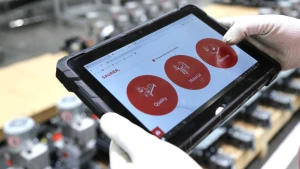
Methods, Success Factors, Best Practices
- Do's and Don'ts
- Qualification
- Remote
In the third thematic pillar of the project, central technical and organizational conditions for the successful implementation of a Digital Transformation towards a Smart Factory were considered. Starting with crucial IT systems of the Smart Factory such as MES and IIoT platform, agile methods were explained as a central organizational principle. Based on best practices from implemented projects in a global context, successful approaches and central challenges of Digital Transformation were identified.
With the help of a moderated SWOT analysis, the participants finally identified and discussed company-specific success factors and potential stumbling blocks on the way to the Smart Factory. For this purpose, the relevant elements and factors were considered, based on findings from NEONEX's everyday consulting work and the personal experiences of the experts involved.
The results of the entire Smart Factory Qualification Lab provided key findings for successful implementation in the customer's own company from the perspective of the customer's own employees.



